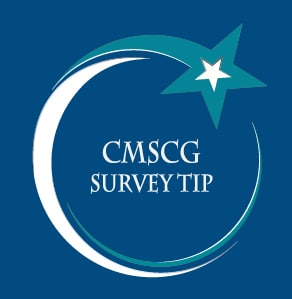
Next up on the CMSCG “Ftag of the Week” Blog series, we will be looking at F698 Dialysis. CMS Compliance Group Clinical Consultant Mary Quinn, RN, BSN, MA is lending some additional clinical expertise to the review of this regulation.
Nursing home residents essentially have two options for how they can receive dialysis treatments – at a Medicare-certified dialysis facility, or in the nursing home. If a resident will receive services at a dialysis facility, the resident may need to be transported to/from the facility to the dialysis center. The facility may also have a dedicated location where a separately certified dialysis center provides services. Alternatively, if the nursing home offers it, a resident may receive home hemodialysis (HHD) or peritonea dialysis (PD) in the facility.
What’s Required – F698 Dialysis
While there is no regulatory requirement that a nursing facility must offer dialysis services, the facility is still responsible for ensuring that residents who require dialysis services receive them. When a resident is admitted to a nursing home, the nursing home has determined that it has the capability and capacity to provide goods and services to meet the needs of the resident by its staff.
In a nutshell, here is what’s required under the Dialysis regulation:
- The facility is responsible to ensure that the resident receives the care and service for the provision of hemodialysis and/or peritoneal dialysis consistent with professional standards of practice.
- The facility remains responsible for the overall quality of care the resident receives and must provide the same services to those who receive dialysis as those who do not.
- If a current resident has been identified as meeting the criteria for dialysis and prefers onsite services, but the facility does not allow then, the nursing home must assist the resident with the transfer to another setting of his/her choice that provides dialysis services.
- If an arrangement with a dialysis provider is in place, each resident must be informed prior to or at the time of admission and on an ongoing basis during their stay if the service is available at the nursing home.
Regardless of the way dialysis services are provided, the intent of this regulatory requirement is to ensure that residents receive care that is consistent with professional standards of practices. Per Appendix PP of the SOM, this includes:
- Facility staff conduct ongoing assessments of the resident’s condition and monitoring for complications before and after dialysis treatments received at a certified dialysis facility. Staff need to ensure pre-/post- notes are documented for each resident receiving dialysis.
- Ensuring there is on-going communication and collaboration with the dialysis facility regarding the resident’s dialysis care and services.
- Ensuring that if dialysis services are provided by the facility, administration is safe and provided by qualified, trained staff, in accordance with Federal/State laws and regulations.
- Ongoing assessment and oversight of the resident before, during and after dialysis treatments. This includes monitoring the resident’s condition during dialysis treatments, monitoring for any complications, implementing appropriate interventions and following appropriate infection control technique.

Definitions
Let’s review the definitions provided in the guidance in Appendix PP:
“End-Stage Renal Disease (ESRD)” – The stage of renal impairment that appears irreversible and permanent and requires a regular course of dialysis or kidney transplantation to maintain life.
“Dialysis” – A process by which dissolved substances are removed from a patient’s body by diffusion from one fluid compartment to another across a semipermeable membrane. The two types of dialysis that are currently in common use are hemodialysis (HD) and peritoneal dialysis (PD).
“Dialysis facility” – An entity that provides outpatient maintenance dialysis services or home dialysis training and support services, or both.
“Home Dialysis” – Dialysis performed at home by an ESRD patient or caregiver who has completed an appropriate course of training.
Who’s Responsible for What?
It’s important to note that during survey, the survey team does not have the authority to review the care/services being provided by a contracted dialysis provider. If there is a concern identified with dialysis services, the survey team is supposed to report it to the State Agency unit responsible for overseeing Medicare-certified ESRDs. This means that in order to assess a facility’s compliance with this regulation, the surveyors will be looking at the SNF how it handles its responsibility to ensure residents who receive dialysis receive the service in accordance with professional standards of practice.
- The dialysis provider is responsible for the medical management for ESRD, including dialysis treatments, performed offsite or onsite. The dialysis facility is responsible for providing all necessary equipment and supplies for the dialysis treatments. This includes maintenance and repair (as needed), testing/monitoring water and dialysate quality for the dialysis treatment, and for the training of individuals providing the HHD/PD.
- The nursing home is responsible for the overall quality of care that the resident receives, including ongoing assessment, care planning and provision of care.
- Both the nursing home and dialysis facility must have input in creating and implementing a coordinated plan for dialysis treatments for the resident.

Two important reminders:
- Make sure a contract is in place for each dialysis facility that your nursing home residents utilize.
- Don’t forget contracts for transportation to and from off-site facilities
These are easy “gotchas” on survey that can be avoided with a little due diligence.
In next week’s Ftag of the Week post, we will review policy & procedure requirements for dialysis and a key area – staff training and competencies.

CMS Compliance Group, Inc. is a regulatory compliance and quality improvement consulting firm. To learn more about our services for skilled nursing facilities, visit our services overview or call 631.692.4422.